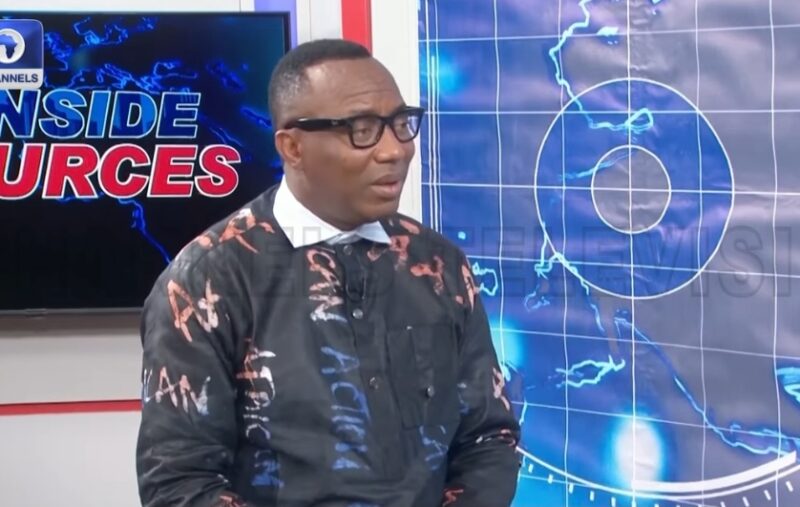Prominent Nigerian activist and publisher of Sahara Reporters, Omoyele Sowore, has dismissed the proposal by Professor Pat Utomi to establish a “shadow government” as an ineffective and symbolic gesture that lacks real-world impact on Nigeria’s pressing challenges.
Speaking on Inside Sources with Laolu Akande on Channels TV on Sunday, the former presidential candidate argued that the idea of a shadow cabinet is futile in a country where the existing government is itself opaque and largely unaccountable.
“Well, how do you replace a shadow government with another set of shadowy government?” Sowore asked rhetorically, critiquing the concept of mimicking democratic traditions such as shadow cabinets, which originated in parliamentary systems like the United Kingdom. “I would not begrudge anybody who thinks of solutions that can bring awareness to the people… But I do not think that setting up a government with names of people who call themselves a shadow government makes any difference.”
Sowore, who has been a long-time advocate for radical democratic change, said Nigeria’s problems cannot be solved with symbolic gestures. He challenged the feasibility and utility of Utomi’s idea, which suggests creating an alternative governing structure to mirror the functions of the current administration.
“Because what is the shadow government going to be doing? So they’re supposed to provide alternative to each of the existing government portfolios—the parastatals, the ministries, and departments. How does that work, really? Apart from the fact that it sounds esoteric, nothing beyond the creation of that shadow government will have any impact on the situation that is affecting Nigeria today,” Sowore said.
The publisher emphasized that the current Nigerian government already operates as a “shadow government,” characterized by opacity, corruption, and a disconnect from the needs of ordinary citizens. Creating another similar body, even in the name of accountability, he said, merely duplicates dysfunction.
“My attitude towards this is that the government in place is already a shadow government,” he noted. “So to now go and create another superstructure named shadow government—that’s not going to have any impact on what these guys are doing.”
Sowore’s remarks come as Nigerians grapple with worsening economic conditions, deteriorating governance, and the lack of credible opposition voices. While Utomi’s proposed “shadow government” aims to serve as a check on the ruling party by offering policy alternatives and a vision of good governance, Sowore believes the real path to change lies in mass mobilization, civic consciousness, and direct political participation.










